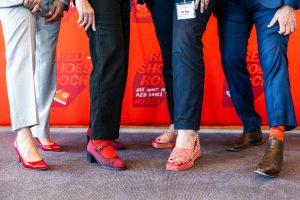A partnership between the Woolworths-owned BWS alcohol chain and the Dry July Foundation has been condemned as a shocking and ill-conceived ‘sobriety stunt’.
The marketing campaign, announced through an alcohol industry-branded media release, carries the headline BWS Becomes ‘Because We’re Sober for Dry July’.
Leading public health organisation, the Foundation for Alcohol Research and Education (FARE), has called for the partnership to be terminated immediately, with Chief Executive Michael Thorn warning it is dangerous.
“Each year, more than 3200 Australians develop alcohol-attributable cancer,” Mr Thorn said.
“Alcohol is a class 1 carcinogen. The alcohol in one bottle of wine has the equivalent cancer risk of smoking five cigarettes for men and 10 cigarettes for women,” he said.
Dry July is a charity that raises funds for people with cancer, and Mr Thorn says this partnership undermines its purpose and reputation.
“It is inappropriate to have one group that sells cancer-causing alcoholic beverages 365 days a year partnering with the other group that fundraises to support the victims of alcohol harm,” Mr Thorn said.
“To be raising money to help people suffering cancer in a way that causes more cancer cases in the future is completely futile,” he said.
FARE has written to Dry July’s beneficiary organisations, including many cancer groups, calling on them to intervene immediately and to ensure that Dry July repels the influence of the alcohol industry in the future.
Mr Thorn says it is abhorrent that BWS claims to care about people affected by cancer.
“Unless every BWS outlet shuts up shop for the month, this stunt will do nothing to reduce alcohol harm,” Mr Thorn said.
“This is a cynical marketing exercise by BWS designed to push the Woolworths’ alcohol brand and normalise alcohol,” he said.
Mr Thorn says the suggestion that this partnership demonstrates good corporate citizenship by the alcohol retail giant is absurd.
“Cosying up to well-intended public health campaigns is just one of the ways in which Woolworths collects quasi ‘social licence’ credits, while contributing to the burden of harm in Australia by being the biggest seller of toxic, addictive commodities,” Mr Thorn said.
“Cancer is a disease, and the risk factors are propagated by Woolworths flogging alcohol and tobacco to Australia’s most vulnerable people, which makes a sham of their mantra of doing no harm in society,” he said.
Mr Thorn says the partnership takes ‘pinkwashing’ to a new level. Pinkwashing is when a company claims to care about breast cancer while at the same time selling products linked to the disease.
The BWS stunt has been condemned by public health organisations and researchers worldwide, including the founder of #DontPinkMyDrink, Professor Carol Emslie from Glasgow Caledonian University, UK.
“This partnership seems particularly bizarre. For years, the alcohol industry has promoted breast cancer awareness activities while selling products that are known to be carcinogenic in an attempt to extend their marketing reach to young women,” Professor Emslie said.
“This partnership seems to be a similarly cynical attempt to extend marketing reach by associating a large alcohol retailer with a well-known charitable cause,” she said.
Mr Thorn says the partnership is a paradox that exposes Woolworths’ corporate social responsibility efforts to be cynical and manipulative window dressing by a company increasingly under fire as Australia’s number one purveyor of addictive products.






